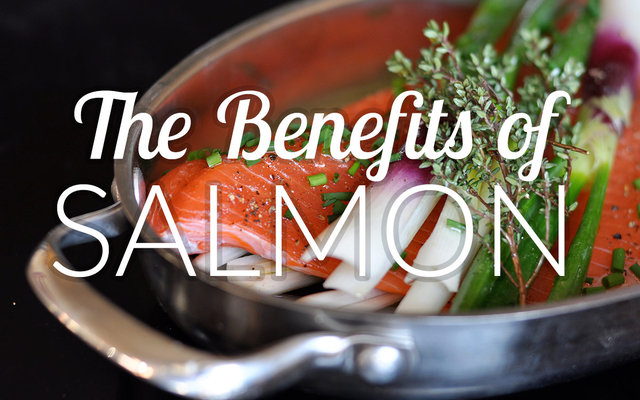by Tom Malterre | 3 comments
The Benefits of Giving Up Processed Foods
After a few years of recommending gluten-free diets, we noticed that many people were beginning to consume more processed foods, thinking that because it was gluten-free, it was healthy. This helped us to refine our education and cooking skills even further to help others remember that it is optimal to maintain a diet based off of organic whole foods and to leave the processed gluten-free products lining the grocery store shelves and out of your diet.
Even so-called gluten-free packaged items can contain dangerous trace amounts of gluten if the manufacturer has not been careful to avoid cross-contamination during processing.
What Makes a Food Processed?
There is a lot of debate on what actually constitutes a processed food. In reality there is a continuum of processed foods ranging from naturally preserved foods, like home-canned tomatoes or frozen berries, to completely denatured foods, such as high fructose corn syrup. Foods that undergo minimal processing can still be very nutritious, such as extra virgin olive oil, virgin coconut oil, and raw apple cider vinegar.
Highly processed foods include man-made pseudo-foods such as artificial sweeteners and hydrogenated oils. Processed foods often have non-food constituents added to them like bleaching agents, solvents, and alkalizing agents and are often fortified with synthetic vitamins. Processed foods refer to those that are entirely man-made or have had parts removed from them or added to them, such as the refining of corn into high fructose corn syrup, or the bleaching and enriching of white flour.
Processed Foods Result in Loss of Nutrients
When a food is processed, such as processing brown rice to make white rice, many essential nutrients and fibers are lost for properly digesting the grain. Blood sugar spikes more rapidly because the fibers that slow down the release of sugar into the blood stream have been removed and the majority of vitamins, minerals, and phytochemicals present in the outer portion of brown rice are lost. For example, thiamine and biotin help to utilize blood sugar by bringing glucose into the energy powerhouse of the cell—the mitochondria—to be burned for energy.
Eating refined, processed foods over time can deplete the body of essential nutrients needed for it to function properly. However, eating something refined on a very occasional basis—as long as it's truly gluten-free—shouldn’t cause much harm if the body is well nourished from a whole foods diet.
Reduce Chronic Inflammation with Whole Foods
You can reduce chronic inflammation by eliminating the pro-inflammatory foods previously mentioned, as well as limiting certain foods that may be causing inflammatory reactions in the gut—gluten and dairy being the most common. Be careful about switching to a diet of processed, packaged gluten-free and dairy-free foods as they are often high in sugar and refined starches, such as corn starch and potato starch, as well as canola oil—all of which contribute to inflammation. Consuming a diet high in anti-inflammatory foods such as raw organic berries and cherries, organic green vegetables like kale and broccoli, soaked raw nuts and seeds, slow-cooked whole grains, cold-water fish like wild salmon, and small amounts of sustainably-raised meats will reduce chronic inflammation by sending signals to the immune system to keep the body calm and balanced. A calm immune system is one that reacts to pathogenic bacteria and viruses and is less likely to react to food and other things in the environment, like pet dander and pollen. The message? The food we eat either increases or decreases the alert and alarm signals of the body. (NM p. 18)
Processed Foods: How Did We Get Here?
Consuming denatured, highly processed food full of chemical residues is the cultural norm these days, but it is only very recently since this food system has been in place. It wasn’t until the 1930’s that we began getting heavily exposed to processed foods, so only a few generations have been around to experience the results of this radical shift.
Our great grandparents ate seasonal whole foods—not altered in any way—and did not have the pollution we see today. With each generation, our diets grew further and further away from nature. Chemical agriculture became widespread after World War II. Natural and organic farming methods were replaced with the use of chemical fertilizers and pesticides. The 1950’s saw a boom in processed foods mainly due to the invention of the supermarket. No longer did people go to the butcher for meat, the baker for bread, or the market for vegetables. Canned and packaged food was in! Our grandparents and parents got to ride the wave of resilience passed down to them from previous generations. They could handle a certain amount of processed foods and environmental toxicity without seeing as much of an effect on health as we see today.
Now we are being subjected to more environmental chemicals than ever before. The rate at which we consume highly processed foods continues to climb, and eating genetically engineered foods has become commonplace. This environment is changing the way our genes are being expressed, causing damage to our guts, creating chronic inflammation, and contributing to a rise in food and environmental allergies like we have never seen before.

Stay up to date with the current science and recipes that can help make your family healthy.




Comments
Gluten Free
by Kellye on Mon, 02/16/2015 - 6:02pm
Gluten Free and Better!
by Tom Malterre on Sun, 03/08/2015 - 1:31pm
Gluten sensitivity
by Bill Bowers MD on Fri, 08/23/2019 - 9:16am
Add new comment